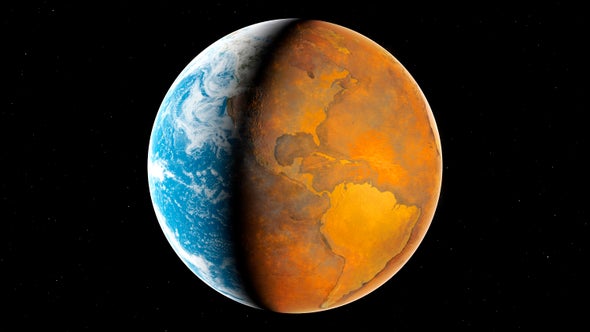
Climate meeting in Madrid a disappointment
Reports from the Intergovernmental Panel on Climate Change have, in clear terms, explained the decisive difference between 1.5 degrees of warming and 2 degrees. The world is hurtling toward 3 degrees of warming. Pollution is increasing at a growing pace.
The result of the Madrid climate summit?
Anxious silence. Chairs being pushed backward in the room. A glance toward the next meeting in Glasgow in December 2020.
In short: you should be embarrassed.
Young people across the world, the ones who will experience climate change when it really gets bad, are shouting out the importance of political bravery. And the result?
Article 6 in the Paris climate agreement, setting the rules for emission trade between countries, was supposed to be implemented in January 2020. The countries couldn’t even agree on this.
The framework of transparency, designed so that countries report reductions in emissions in a uniform way, was supposed to be completed. The countries could not agree on this.
Then they talked about those who are impacted the most: poor countries that often manufacture our cheap goods under terrible working conditions and heavy emissions. The countries taking part in the meeting could not agree on long-term financial aid for these countries which are most impacted.
(By the way, don’t tell Swedish TV’s climate expert that poor countries are impacted the most by the climate crisis. Pointing out that fact is considered left-wing populism. Apparently the same goes for citing the first line in the U.S. Constitution: “We the people …”)
Donald Trump’s Decision Was Influential
The shadow of President Donald Trump hung over the meeting. His decision to withdraw the U.S. from the Paris climate agreement, effective after his potential reelection, has shaken the very foundations of the treaty. The representative for the little island kingdom of Tuvalu received applause as he condemned America’s lack of solidarity. Trump’s decision created a fear of going too far in terms of rules and regulations, and thereby risked the possibility that additional countries will exit the agreement.
Withdrawal also created an excuse for other countries to resist, which they certainly did. First, the U.S., Brazil and Australia are reported to have pushed against more ambitious petitions and stricter rules. Even China and Saudi Arabia were accused of hindering progress.
“All countries share the same atmosphere; you cannot build walls against climate change,” a visibly disappointed Swedish Climate and Environment Minister Isabella Lövin told the Dagens Nyheter newspaper afterward.
Sticking Together and Keeping Our Promises
There was a glimmer of light as the meeting finished against the same gray background as the forest fire smoke over Sidney.
The equality plan for climate work was strengthened, and every country committed to keep its climate commitments in line with the latest science.
Outside of the U.N. Climate Change Conference COP 25, other promising signs of progress are visible. For example, many global businesses are taking increasing responsibility for climate change. Approximately 10 U.S. states and many U.S. cities have committed to abide by the Paris climate agreement that Trump is abandoning. The World Bank Group, International Monetary Fund, and the EU are taking big steps toward removing emissions from fossil fuels. Individual countries have decided to make a difference. The Swedish government, for example, will stop providing export credits to fossil fuel enterprises.
All over the world there is an abundance of energy and a desire to make a difference.
It is a shame the world leaders did not take advantage of that in Madrid.

Leave a Reply
You must be logged in to post a comment.